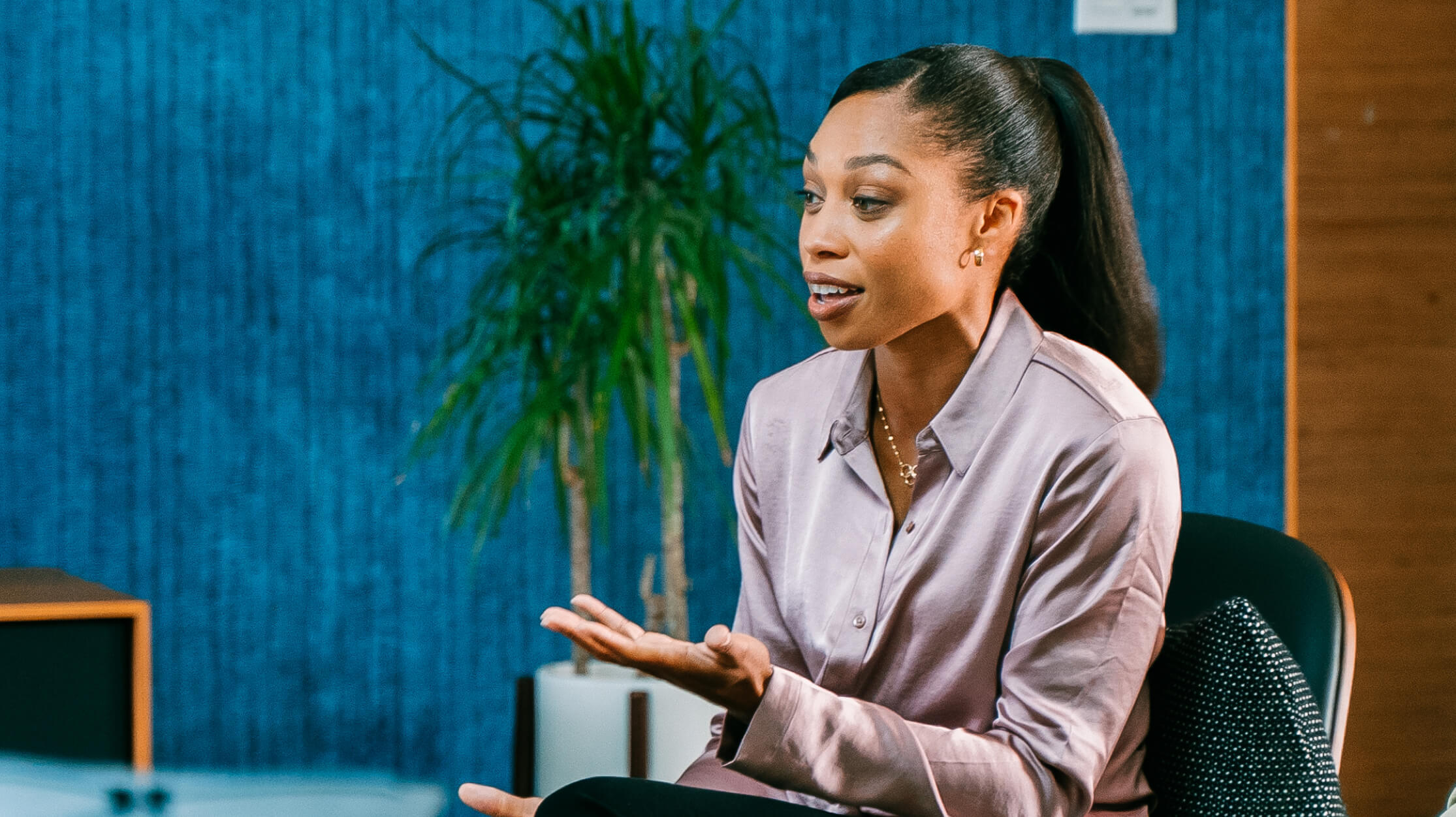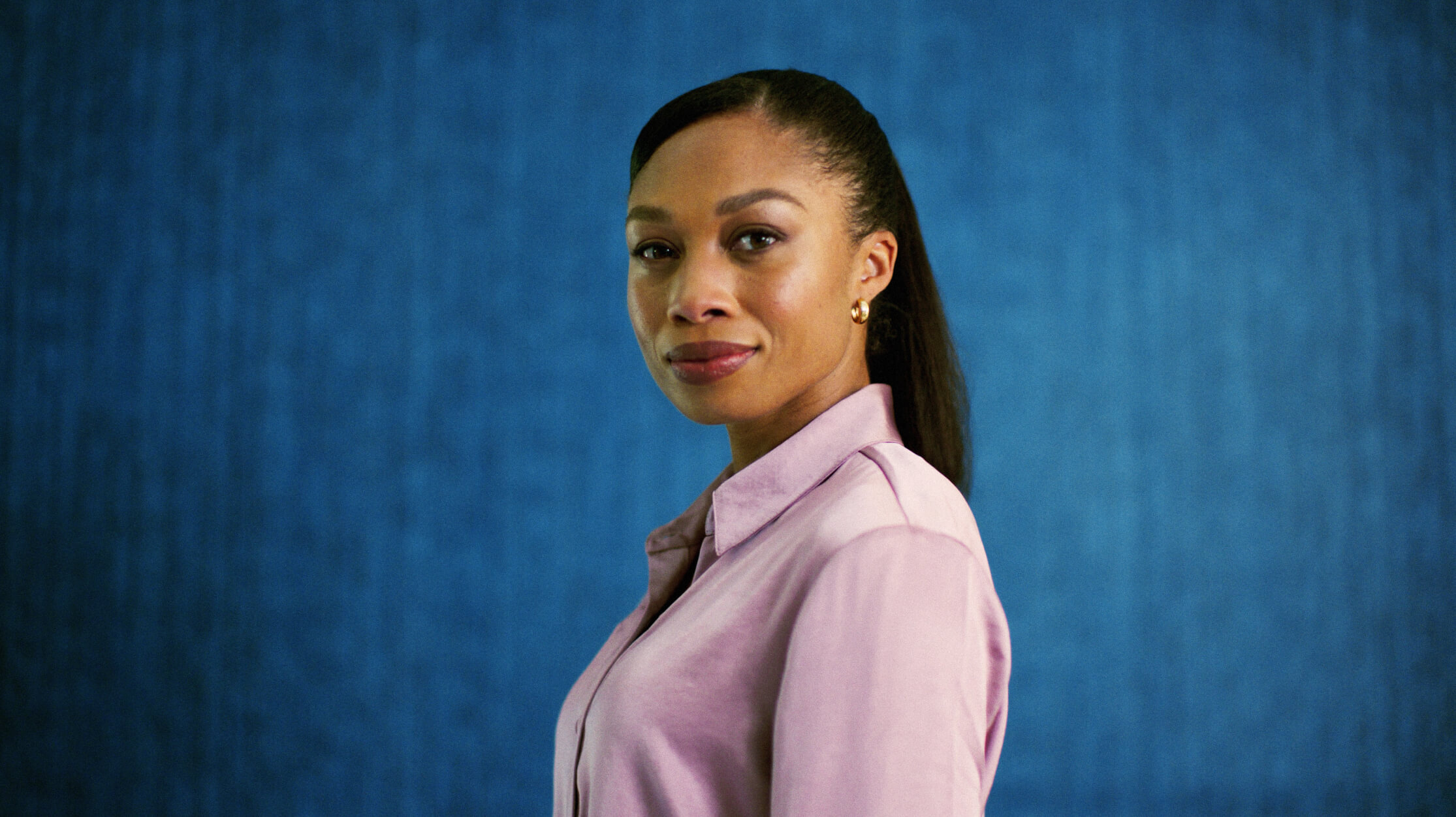ALLYSON FELIX
“The storm is going to come, we all know that, but can you trust the team to navigate it? Do you have the pieces in place to get through that?”
Transcript
Wes: That was our big idea to build a company, and to do it as two kids from South Central LA who never had any aspirations of ever building something like that before.
Mark: I would love to talk about the big, the bold, the innovative, creative idea around Saysh.
Wes: I think it’s a bit of a tag team story and it starts with you and where you were in your career. So maybe you (Allyson) can kick it off.
Allyson: After going through this whole ordeal, fighting for maternity protections and walking away from Nike, who I had been with for a really long time, it left me in a place where I was really disheartened.
I felt like I wasn't being valued. My worth wasn't being seen. And, at this point, I still wanted to compete. I was preparing for another Olympic games. It was my fifth Olympic games, and I didn't have shoes to wear at the Olympics.
And we just thought that that was crazy. And so, in talking to Wes, I was really kind of just venting to him and telling him, "I can't believe I'm at this point in my career and I'm still fighting." And I was just so tired of fighting. And he kind of looked at me and said, "Well, what if we did this ourselves?" And I'm like, "You mean start a company, create shoes for me to wear?"
Wes: And when she said, "Build a company?" I think I was like, "Yeah, that is foolish. That makes no sense at all." But as older brother, I was like, "Of course. Yeah, we should build a company." That was our big idea to build a company, and to do it as two kids from South Central LA who never had any aspirations of ever building something like that before.
But what we learned was the problem was a whole lot bigger than Allyson needing shoes to wear in the Olympics. We learned that shoes are not made for women. And you say that statement, and it sounds so like, "Oh, I know, for sure." But, literally, when you go back to the very beginning of making a shoe, a shoe is built on a last, and that last is based on a man's foot.
So, in the sneaker world, there really are not shoes made for women. And that's just started to recently change. I think we were kind of the first company to market that said, "This is all we do – make sneakers based on women's feet."
Terry: They feel different. They fit your feet differently. They are more comfortable. They do feel like they were made differently than what you normally expect.
So, I do think you have achieved on that, even though you weren't trying to build a better shoe. But, in the course of doing so, did wind up building a better company. It's bold. It's pretty impressive. I know at Oliver Wyman, we also try and have big ideas.
And people tell us, "We come to your event because you push the thinking, you bring the bigger ideas, you help us actually drive more innovation and change in the industry." So, I can relate to sometimes the crazy idea and taking the risk that is needed to actually make big things happen.
So, following up on that notion of the big ideas and risk, it comes with big challenges. Tell us a little more about what it was like trying to get that off the ground.
Wes: Yeah, I think one of the biggest ones was the financing world. And as a female-owned, people-of-color-owned, we hear the data on that, we hear the stats, and I think it's less than 2% of venture financing is going to women. And then you look at women of color and people of color and you start getting even smaller and it's an uphill battle. And for us, it was an uphill battle too.
Even with Allyson behind us, leading our charge around fundraising, we still ran into a lot of things where we make shoes specifically for women. And we heard people who could have been investors asking questions like, "Well, do you think there's a large enough market?" And we're sitting there saying-
Terry: We're half the world.
Wes: It's literally half the world.
Terry: And we buy more shoes per person than you.
Wes: Yeah, it's a big market.
And I think that's what we ran up against a lot was, so you're telling me these other big, massive companies, they're not already doing that? That's hard to believe. And I think that's what happens. We get stuck in this world where we're really afraid to change.
We're really afraid to push up against a particular boundary, and it may be something that isn't supposed to be there. So, it had to be a big, bold idea. And it had to be something where, fortunately, Allyson was really able to lead us in this very, very fearless way that she also had on the track.
And we got to just tuck in like a hard workout and follow her and her courage and be able to say, "Alright, we're just going to go and we're going to keep on bringing this change to the world and we're going to run into a barrier. We're going to keep on pushing and keep on pushing." And she showed us that, how we really do that.
Allyson I think most people would've thought I was crazy had I told them from the beginning what I wanted to do. But knowing that you have to be resilient, you have to persevere, that is just a part of it.
To me, now, working together and building this company, I love bringing that energy because the storm is going to come, we all know that, but can you trust the team to navigate it? Do you have the pieces in place to get through that?
And I think that's what's really been amazing now is, I do have a team and I do trust them, and everyone is an expert in their own area, and we can come together to do this.
Terry: So, tell us a little bit more about how did that evolve or what do you think as a leader is really important in creating the right team and then getting the most out of that team?
Wes: I think that's something that I'm really proud of us for doing. It’s that as we found those people who we determined we're going to trust their advice, we actually trusted it and we listened.
And that didn't mean it all worked perfect. We then had to go and reshape the team, rebuild the team. But now, like Allyson's saying, we do have a really strong team of people who, they know what they're doing, they know how to do what we're trying to accomplish, but more than any of that, they believe in the mission of why we exist.
And, for us, that's number one. If you believe in why we're trying to create the change, why the change is needed, then I think we'll be able to take the next steps and really figure it out.
Up Next

Run with Courage
Find out how Allyson has conquered fears and overcome adversity in athletics and beyond.

Run with Integrity
Learn how, and why, Allyson and Wes built a business that lives its values.